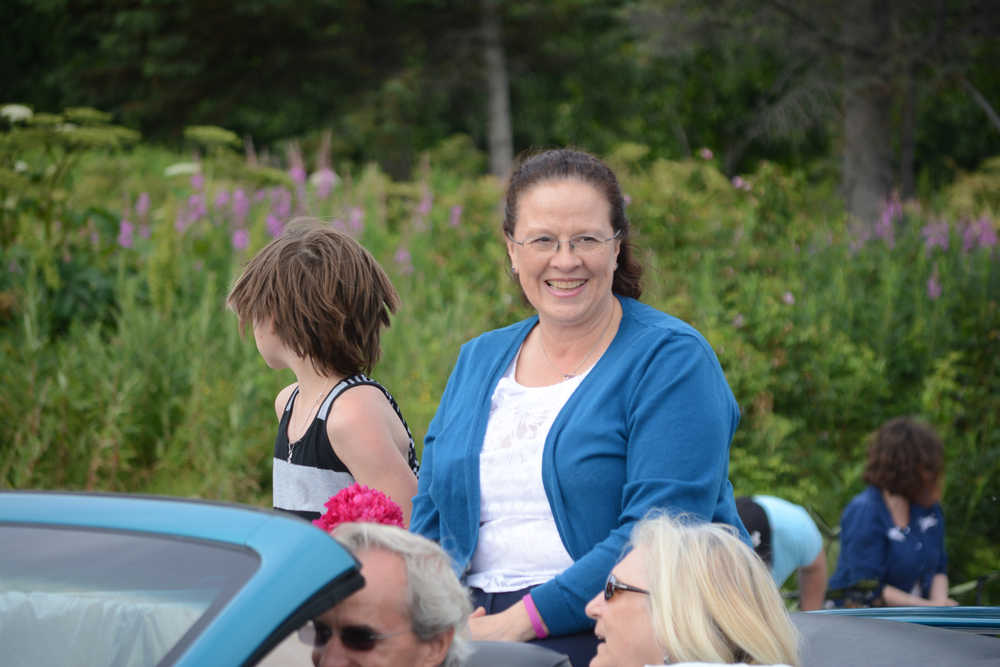If lower Kenai Peninsula voters want a choice of who will represent them in the Alaska House for District 31, they’ll have to pick the Republican Party ballot in the Aug. 16 primary. With only Republican Party candidates competing, and no independents on the general ballot, barring a write-in campaign, the race will be decided next month.
The Republican Party sets its own rules on who can vote in the primary. To vote the GOP ballot, the party says a voter must be registered as a Republican, nonpartisan or unaffiliated.
Voters have until July 17 to register to vote or change party status. Many unaffiliated voters registered Democrat to vote in the party caucuses last winter, particularly supporters of U.S. Sen. Bernie Sanders. Those voters would have to switch party affiliation again to vote in the primary.
In order of how they appear on the ballot, running for District 31 representative are:
• Rep. Paul Seaton, 70, the incumbent first elected in 2002 and seeking his eighth term;
• Homer Mayor Mary E. “Beth” Wythe, 55, a former Homer City Council member and two-term mayor, and
• John R. “Bear” Cox, 58, an Anchor Point business owner and career U.S. Navy veteran who challenged Rep. Don Young in the Republican Party primary in 2012 and 2014.
Also appearing on the Republican Party ballot is Sen. Gary Stevens, R-Kodiak. He’s running unopposed in both the primary and general election. Barring a write-in campaign, he’s the presumptive winner.
Like other incumbents, Seaton’s campaign has been hamstrung by legislative rules, which do not allow fundraising while the Legislature has been meeting in the regular session as well as in special sessions. This week, Seaton went back to Juneau for the fifth special session of the 29th Legislature.
Wythe announced her intent to run in November 2015. She said then she differs more from Seaton in approach than positions.
“I feel like I would bring a fresh set of eyes, a fresh perspective. Often when you have financial interests going on, that fresh perspective is helpful,” she said then.
Cox said he offers an anti-tax alternative to Seaton and Wythe.
“I’m very much against income tax. I’m very much against property taxes. I’m very much against robbing our Permanent Fund Dividend,” he said.
As opposed to his opponents, Cox said he would follow the will of the people.
“You ask me what I think, I’m going to tell you straight up,” he said. “That’s the big difference between me and them.”
Taz Tally, the new District 31 Democratic Party co-chair, said the party has been reorganizing and hadn’t been able to find a candidate to run. A lot of the local party’s energy has been focused on the presidential election and on the Sanders campaign, he said.
“Everybody was new. I think it was too much for folks to handle,” Tally said.
Tally said he had considered running himself, but chose not to. Many Democrats are comfortable with Seaton, Tally said.
“There are a lot worse people who could be our representative than Paul. I think he’s well prepared,” he said. “I don’t think he super partisan.”
In the House District 32 race for Seldovia, Nanwalek, Port Graham and Kodiak, incumbent Rep. Louise Stutes, Kodiak, has no opposition in the Republican Party primary. Brent Watkins, Kodiak, also faces no opposition in the Democratic Party primary. They’ll face each other in the general election.
The primary ballot also includes candidates for two federal races, U.S. Senator and U.S. Representative. Incumbents Sen. Lisa Murkowski and Rep. Don Young both face challengers in the Republican Party primary.
Murkowski lost the primary in 2008 against Joe Miller, but won the election in a historic write-in vote. Challenging her are Paul Kendall, Thomas Lamb and Bob Lochner.
Young, Alaska’s most senior member of Congress, was first elected in a special election in March 1973 to fill the seat left vacant by the presumed death of Rep. Nick Begich, who disappeared in a plane crash in 1972. Young seeks his 23rd term in office. Challenging him in the Republican primary are Gerald L. Heikes, Jesse J. “Messy” Tingley and Stephen Wright.
In the Democratic primary race for U.S. Senate, Edgar Blatchford is running against Ray Metcalfe. Cean Stevens is the Libertarian Party U.S. Senate candidate. Democrats, Libertarians and Alaskan Independence Party candidates appear together on the same ballot.
In the Democratic primary, Steven Lindbeck is mounting a serious challenge, hoping to take on Young. On Monday, he announced he’d raised nearly $420,000 in campaign funds, the most any challenger against Young has raised since Ethan Berkowitz in 2008.
Running against Lindbeck in the Democratic Party primary are William D. “Bill” Hibler and Lynette “Moreno” Hinz. Libertarian candidates Jim C. McDermott and Jon B. Watts are running to be their party’s candidate.
Michael Armstrong can be reached at michael.armstrong@homernews.com.


